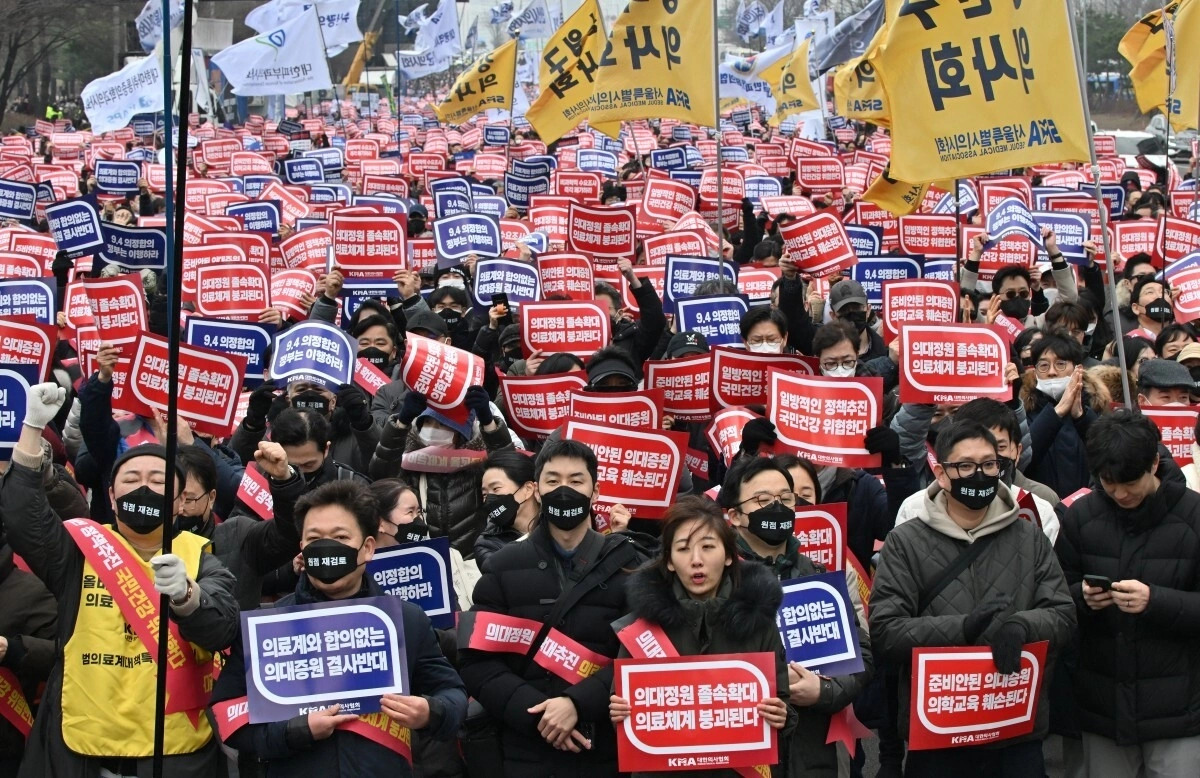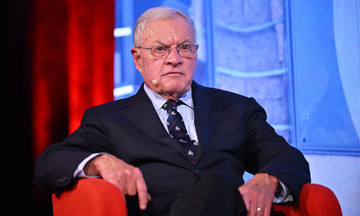Around 8,300 students have agreed to return to school, a spokesperson for the Korean Medical Association said on 13/7. They believed that continuing the boycott "could cause the foundation of the medical system to collapse." There's no set return date as each school will decide its own schedule.
The South Korean Ministry of Education had previously announced that students at 40 medical schools nationwide would fail the academic year and be required to repeat it with the next class.
South Korea's healthcare system has been in turmoil since early last year, after then-President Yoon Suk-yeol decided to increase medical school enrollment by 2,000 students starting in 2025. This move was intended to increase the number of doctors to meet the growing demands of a rapidly aging society.
 |
South Korean resident doctors protest in Seoul in 3/2024. Photo: AFP |
South Korean resident doctors protest in Seoul in 3/2024. Photo: AFP
Yoon's decision met with fierce opposition, leading 12,000 resident doctors to strike and thousands of medical students to boycott classes starting in 2/2024. Numerous surgeries were canceled, and medical services were disrupted nationwide. Resident doctors play a crucial role in supporting surgeries and emergency services at major hospitals.
The proposed enrollment increase was later reduced, and the South Korean government offered to cancel it entirely in 3/2024 after Yoon's impeachment. However, most of the striking resident doctors refused to return to work.
Prime Minister Kim Min-seok welcomed the students' return to school, calling it a "major step forward." He also said President Lee Jae-myung, who took office last month, is considering solutions to address the remaining issues.
South Korea has an average of 2.6 doctors per 1,000 people, the lowest among countries in the Organisation for Economic Co-operation and Development (OECD). The OECD average is 3.7 doctors per 1,000 people.
South Korean resident doctors argue that the country doesn't need more medical personnel because there are already enough. They believe changing the policy would lower the quality of national healthcare, pointing out that the population is declining and South Koreans already have good access to medical services. The average number of outpatient treatments per person in South Korea is 14.7 times a year, higher than the OECD average.
Huyen Le (AFP, Yonhap)












